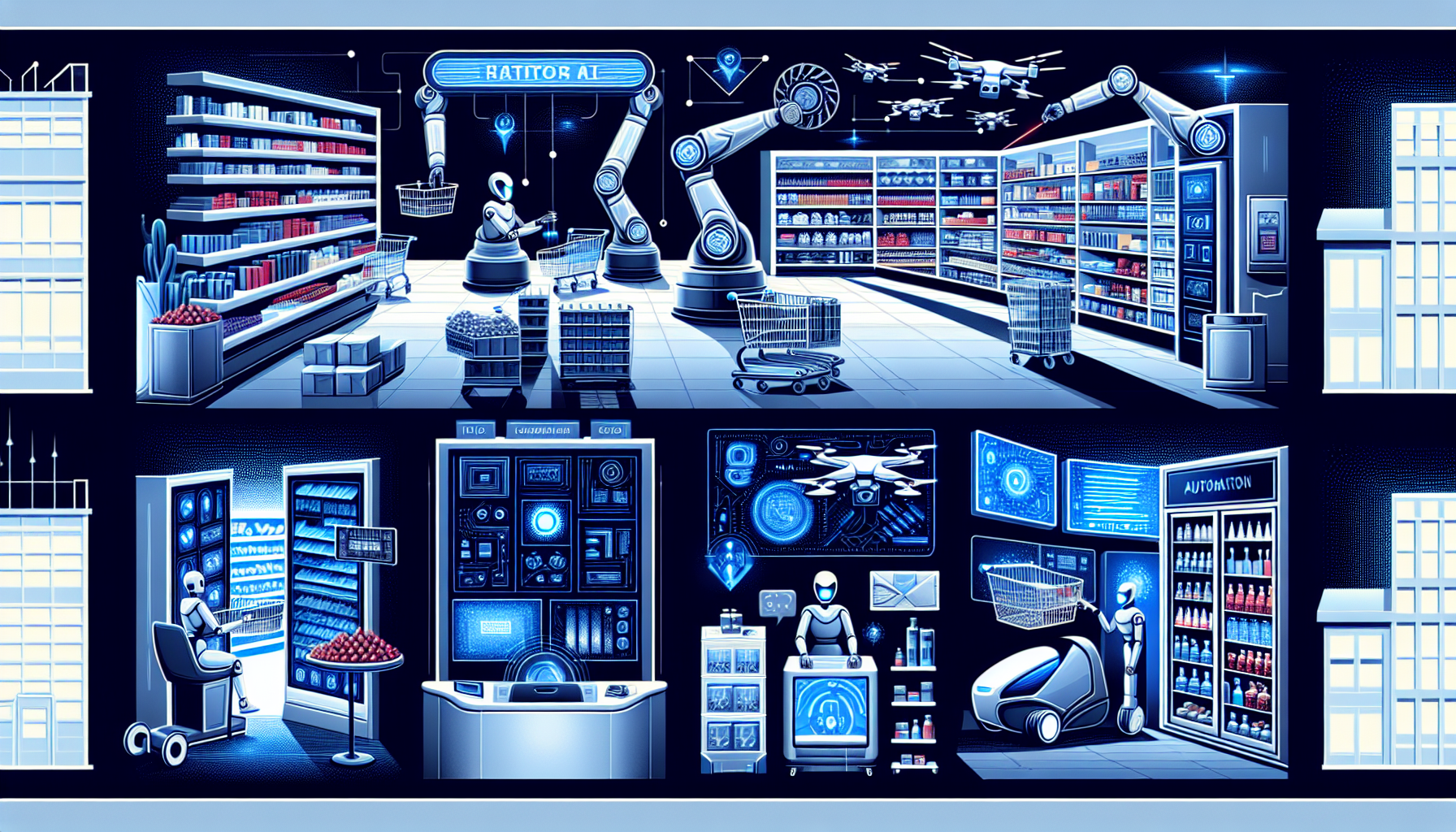AI and Automation: Transforming the Retail Industry for the Future
The Evolution of Retail through Technology
The retail industry has undergone significant transformations over the decades, driven primarily by technological advancements. Today, artificial intelligence (AI) and automation stand at the forefront of this evolution. These technologies are reshaping how retailers operate, engage with customers, manage supply chains, and streamline logistics. As retailers increasingly adopt AI-driven solutions, understanding their impact becomes paramount for stakeholders across the industry.
Understanding AI and Automation in Retail
Artificial Intelligence (AI) refers to the simulation of human intelligence processes by machines, particularly computer systems. These processes include learning, reasoning, and self-correction. In retail, AI is employed to analyze data, predict trends, and enhance customer experiences through personalized interactions.
Automation, on the other hand, involves the use of technology to perform tasks with minimal human intervention. In the retail context, automation spans various activities, from robotic inventory management to automated checkout systems. Together, AI and automation create a seamless, efficient retail environment that caters to the demands of modern consumers.
Enhanced Customer Experience with Personalization
One of the most significant benefits of AI in retail is its ability to facilitate hyper-personalization. By analyzing vast amounts of data, AI can understand customer preferences, behaviors, and buying habits. For instance, recommendation engines—algorithms that suggest products based on users’ past purchases—have become commonplace on e-commerce platforms. Tracking user data enables retailers to deliver tailored suggestions, improving customer engagement and increasing conversion rates.
Moreover, chatbots powered by AI are revolutionizing customer service. They provide instant assistance, answer queries, and even guide users through the purchasing process. As these systems learn from interactions, they become more effective over time, ensuring that customer service remains consistent and efficient.
Inventory Management and Demand Forecasting
Effective inventory management is crucial for the success of any retail business. Traditional methods often lead to overstocking or stockouts, resulting in lost sales and increased costs. AI-driven solutions have transformed inventory management by leveraging predictive analytics. By analyzing historical sales data and current market trends, AI models can accurately forecast demand.
For instance, retailers can adjust their stock levels in real-time based on predictive insights, ensuring they always have the right products on hand. In addition, automation in warehouses—through robotics and automated sorting systems—speeds up the fulfillment process, minimizes human error, and reduces operational costs.
Streamlining Supply Chain Operations
AI and automation enhance supply chain efficiency by transforming logistics and distribution. Advanced algorithms analyze supply chain data in real time, identifying bottlenecks and optimizing routes. This adaptive approach not only reduces shipping times but also lowers transportation costs.
Furthermore, automation in supply chain processes—such as robotic arms in warehouses—improves picking speed and accuracy. These robots can work alongside human workers, taking on repetitive tasks and allowing personnel to focus on more complex responsibilities. By integrating AI with Internet of Things (IoT) sensors, retailers can gain deeper insights into their supply chains, tracking product movement and conditions throughout various stages.
Enhancing In-Store Experience
While e-commerce continues to rise, brick-and-mortar retail remains significant. AI and automation are enhancing the in-store experience by merging online and offline shopping. Advanced technologies like augmented reality (AR) allow customers to visualize products in their own environments before making a purchase. Retailers can implement virtual fitting rooms or interactive displays to engage customers, making shopping more immersive.
Automated checkout solutions, such as Amazon Go, allow shoppers to skip traditional checkout lines. Using AI to track purchases as customers shop, these systems create a frictionless buying experience, leading to higher customer satisfaction and reduced wait times.
Data-Driven Marketing Strategies
In the competitive retail landscape, personalized marketing strategies powered by AI yield higher engagement rates. Machine learning algorithms can analyze customer interactions and segment audiences based on behavior, preferences, and demographics. Retailers can then create targeted campaigns that resonate with specific customer groups.
For example, AI tools can detect when a customer is considering a purchase but has yet to finalize the transaction. Automated follow-up emails or personalized discount offers can be generated to coax the customer back, increasing the chance of conversion. These dynamic marketing efforts are much more effective than traditional mass marketing techniques.
Challenges and Ethical Considerations
Despite the considerable benefits AI and automation offer, retailers must also navigate challenges. One significant concern is data privacy. As customer data becomes a linchpin for AI solutions, retailers must ensure compliance with regulations such as the General Data Protection Regulation (GDPR). Safeguarding customer information is paramount to maintain trust and avoid potential legal repercussions.
Additionally, there are concerns about job displacement due to automation. While robots and AI streamline processes, they can also lead to potential job losses. Retailers must balance automation with workforce development, investing in training programs that equip employees with the skills needed to thrive in an automated environment.
Future Trends in AI and Automation in Retail
Looking forward, the integration of AI and automation in retail is set to deepen. The rise of voice commerce, facilitated by AI-driven virtual assistants, is expected to reshape the way consumers shop. Voice-activated devices will become vital touchpoints in the shopping journey, enabling hands-free purchases and streamlined product searches.
Moreover, the continued development of AI-driven analytics will provide retailers with richer insights into consumer behavior, helping them adapt quickly to emerging trends. As sustainability and ethical consumerism gain traction, AI can help identify sustainable supply sources and optimize production processes, catering to the growing demand for responsible retail practices.
Conclusion (not included as per instruction)
In this transformed retail landscape, adapting to the advances in AI and automation is essential for future success. Retailers who embrace these technologies stand to gain a competitive edge, attract more customers, and create operational efficiencies that enhance their overall business model. As the retail industry evolves, AI and automation will play pivotal roles in shaping the future of shopping.


